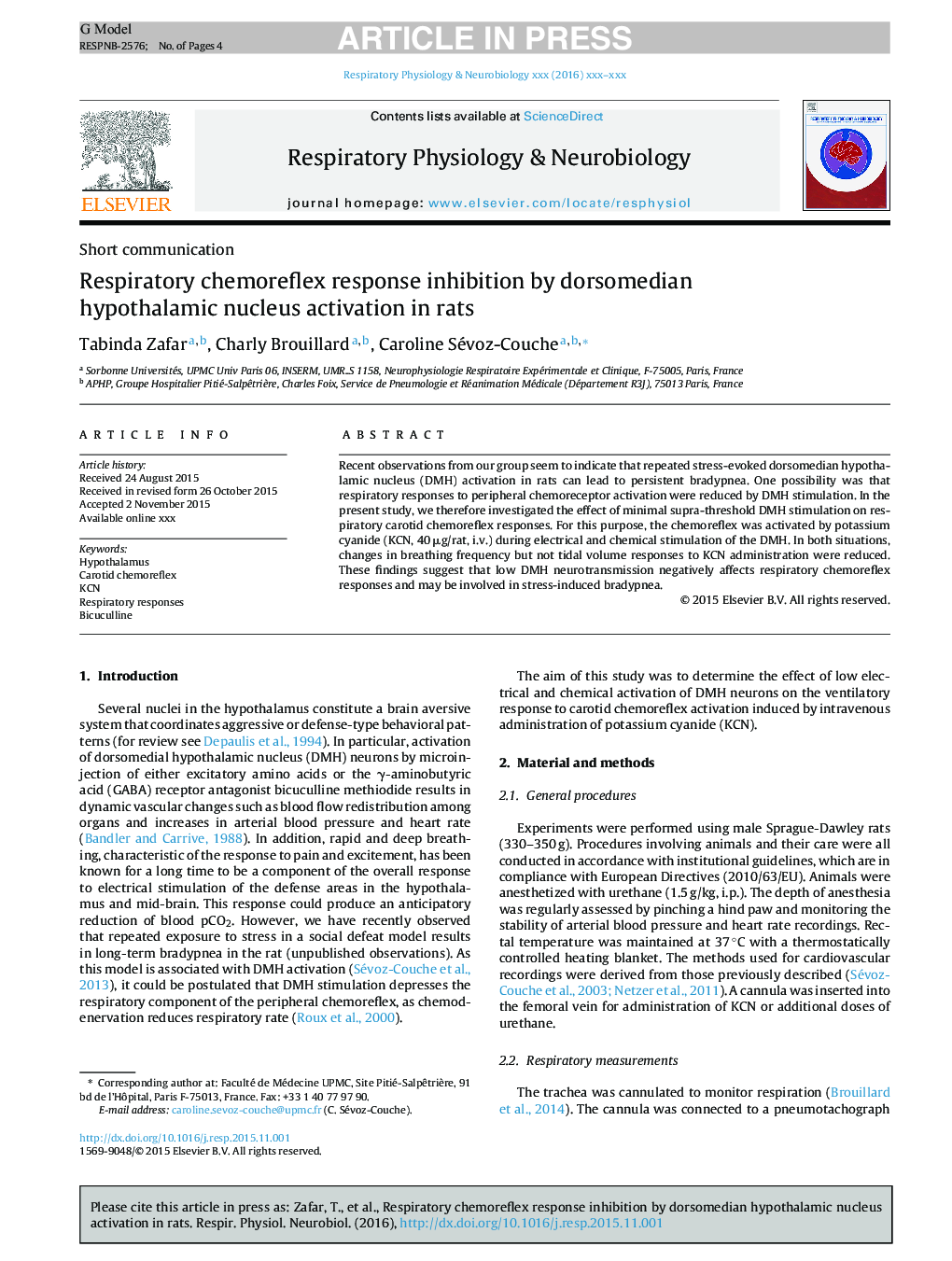| Article ID | Journal | Published Year | Pages | File Type |
|---|---|---|---|---|
| 8650858 | Respiratory Physiology & Neurobiology | 2018 | 4 Pages |
Abstract
Recent observations from our group seem to indicate that repeated stress-evoked dorsomedian hypothalamic nucleus (DMH) activation in rats can lead to persistent bradypnea. One possibility was that respiratory responses to peripheral chemoreceptor activation were reduced by DMH stimulation. In the present study, we therefore investigated the effect of minimal supra-threshold DMH stimulation on respiratory carotid chemoreflex responses. For this purpose, the chemoreflex was activated by potassium cyanide (KCN, 40 μg/rat, i.v.) during electrical and chemical stimulation of the DMH. In both situations, changes in breathing frequency but not tidal volume responses to KCN administration were reduced. These findings suggest that low DMH neurotransmission negatively affects respiratory chemoreflex responses and may be involved in stress-induced bradypnea.
Keywords
Related Topics
Life Sciences
Biochemistry, Genetics and Molecular Biology
Physiology
Authors
Tabinda Zafar, Charly Brouillard, Caroline Sévoz-Couche,
